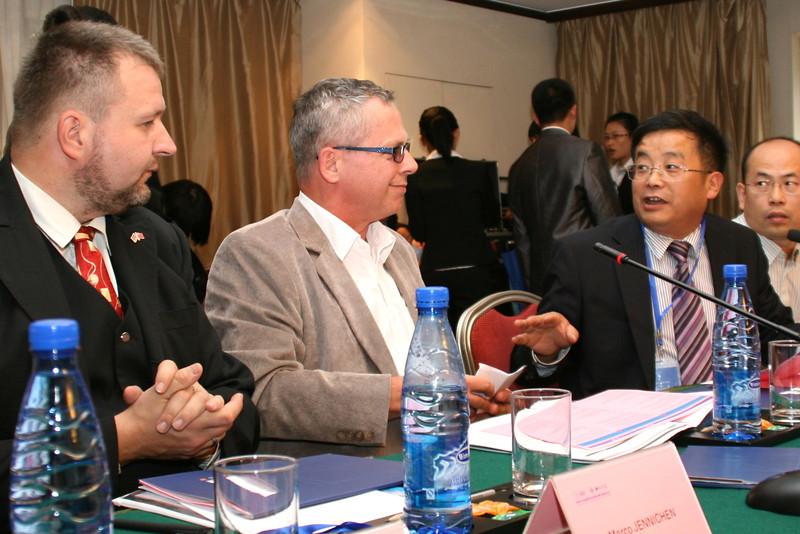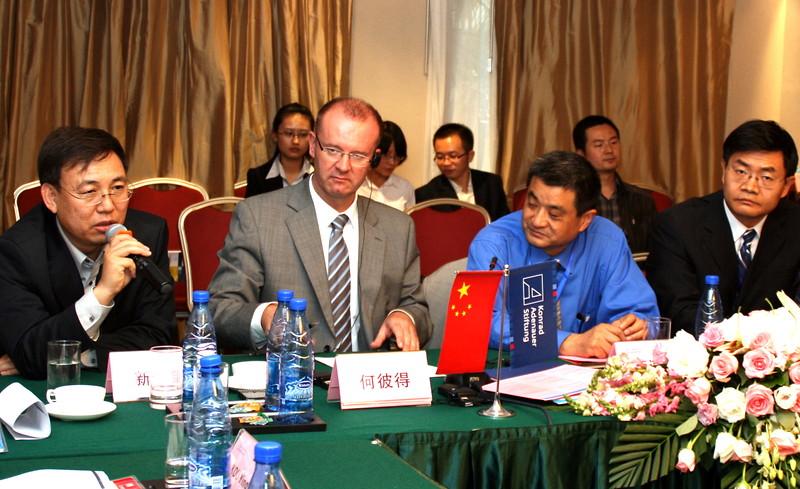Event reports
Chinese and German experts from politics, science and economics attended the event at the Northwest University in Xi’an. The Chinese growth mode as well as migration and urbanisation were central topics. Furthermore the shifting of Chinese and international companies to Western China and the regional developments in the neighbouring states were discussed.
Since 2000 the “Great Western Development Strategy” (Xibu Da Kaifa) is of high priority for the Chinese government. 12 provinces and 3 autonomous regions are affected, which together make up 58% of China’s territory and 25% of its population.
Even though improvements have been achieved, problems in the development remain. Meng Chun, vice minister of the State Council Development Research Center of Macroeconomic Research, explained that the development still differs greatly among regions. Therefore specific political measures on the local level are required, so that the promotion of underdeveloped regions can be guaranteed. Important supportive measures can be seen in reformed tax policies and the improvement of public services and capital markets.
Li Zhenping, director of the Information Center of Shaanxi Provence, reflected the different development phases within the “Go-West-Policy”. Xi’an with its well developed education infrastructure in his opinion offers a good example of the significance of education for a successful development.
Prof. Dr. Bai Yongxiu, economic advisor of the provincial government of Shaanxi province, analysed the current key aspects of regional development such as the improvement of the infrastructure and ecological sustainability. In this context he stressed that he integration of rural and urban development is essential. Infrastructure and public services need to be further improved. Moreover, the local capital markets have to be strengthened, so that the competitiveness of private companies is increased and independence of FDI achieved. The funds should be transferred especially to certain regions and regional clusters should be set up (e.g. Xi’an-Wulumuqi-Lanzhou).
The changes in the Chinese society were subject of the second session. The current urbanisation model and the challenge of integrating the new generation of migrant workers were discussed. The imitation of the “East Coast Model” was criticised for not meeting the goal of sustainability due to the low value added.
Through a number of case studies the third session showed that the number of foreign companies that shift their production to the West of China is steadily increasing, even though they are still confronted with a lack of human resources and weak infrastructure.
In a final roundtable discussion Prof. Xin Wang, director of the Economic Observer Research Institute in Beijing, warned of imitating the experiences from the “East” to the “West”, with setting up special economic zones in order to industrialise as fast as possible. Prof. Wen Jun, sociologist at the East China Normal University Shanghai, pointed out that the “Go-West Policy” should not only be focussed on the economic development. Public services and an urban concept including a liveable environment are also necessary. Nie Xiaoyang, managing editor of the Globe Magazine, referred to the social and mental consequences of uncontrolled growth. Prof. Dr. Zhang Zhengjun from the School of Public Administration of the North West University underlined the importance of an ecological sustainable development, for example when carrying out tourism development projects, taking the growing demand in the future into account.






